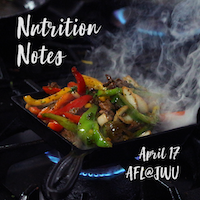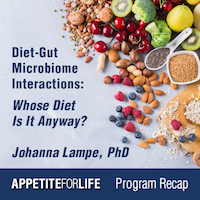Environment and Nutrition
Beginning at conception, environmental factors in health can accumulate over a lifetime and be from sources as broad as geographic location and economic status to specific external sources including physical activity, occupation, risky behaviors and diet. But some of these factors, especially in terms of diet are highly modifiable.
Important research is now being conducted on this concept of the “exposome,” as an environmental complement to the human genome. NRI researchers are learning how diet and other environmental exposures interact with disease and affect responses to treatment.
Publications
Environment and Nutrition Publications
2020
Precision (Personalized) Nutrition: Understanding Metabolic Heterogeneity. Zeisel S
Perspective: Dietary Biomarkers of Intake and Exposure-Exploration with Omics Approaches. Zeisel S
2019
Obesity and Cancer Metabolism: A Perspective on Interacting Tumor-Intrinsic and Extrinsic Factors. Hursting S
When less may be more: calorie restriction and response to cancer therapy. Hursting S
Energy balance and obesity: what are the main drivers? Hursting S
Metabolic Reprogramming by Folate Restriction Leads to a Less Aggressive Cancer Phenotype. Krupenko S
Early-Life Predictors of Fetal Alcohol Spectrum Disorders. May P
Alcohol’s Dysregulation of Maternal-Fetal IL-6 and p-STAT3 Is a Function of Maternal Iron Status. Smith S
2018
Energy balance and gastrointestinal cancer: risk, interventions, outcomes and mechanisms. Hursting S
Research Strategies for Nutritional and Physical Activity Epidemiology and Cancer Prevention. Hursting S
2017
Metabolic Reprogramming by Folate Restriction Leads to a Less Aggressive Cancer Phenotype. Krupenko S
Contribution of Dietary Supplements to Nutritional Adequacy in Various Adult Age Groups. Zeisel S
2016
CerS6 Is a Novel Transcriptional Target of p53 Protein Activated by Non-genotoxic Stress. Krupenko N
Abnormal Eating Behaviors Are Common in Children with Fetal Alcohol Spectrum Disorder. Smith S
Impact of a western diet on the ovarian and serum metabolome. Sumner S
Metabolomics enables precision medicine: “A White Paper, Community Perspective”. Sumner S
Related News
Nutrition Decisions in a Conflicting World: Eggs-actly the Issue
April 18, 2019 – How are we expected to make healthy choices about food when the headlines are so confusing? We all suffer whiplash when we read butter is bad, then butter is good; when red meat is bad, then red meat is good; when red wine is good, and then it is bad….so, what is the headline du jour?
AFL@JWU Recipes – April 17, 2019
April 17, 2019 – Chef Megan Lambert, MS, RD, Senior Instructor in College of Culinary Arts at Johnson & Wales University, Charlotte, prepared healthy, delightful One-Pan Wonders recipes while Steph Saullo, MS, RD of the UNC Nutrition Research Institute, shared nutrition information on each recipe. The recipes from the April 17, 2019 Appetite For Life @ Johnson & Wales University program are available here for your cooking enjoyment!
AFL@JWU Nutrition Notes – April 17, 2019
April 17, 2019 – The science on food and nutrients and their relationship to health is complex. Individuals are unique and there are various factors that influence health outcomes. Researchers at the UNC Nutrition Research Institute (NRI) are working very hard to understand the intricacies of diet and nutrients, and their relationship to disease prevention and progression with the goal that general dietary guidance will be replaced with personalized nutrition recommendations.
AFL Program Recap: "Diet-Gut Microbiome Interactions: Whose diet is it anyway?"
March 22, 2019 – If you missed our March Appetite for Life presentation by Joanna Lampe, PhD, RD, you can catch up. Watch the entire program on video now. The live presentation took place at Forty-Six in Kannapolis on Wednesday, March 13, 2019.
NIH Grant To Study Gene Mutation Associated with Rare Disease
March 22, 2019 – Sergey A. Krupenko, PhD, professor of nutrition at the UNC Nutrition Research Institute (NRI), has been awarded a $2.4 million grant from the National Institutes of Health for his research project, “Regulation of Mitochondrial Function by Folate...
Personalized nutrition: A diet for every individual?
February 25, 2019 –Emily started gaining weight when she was in her 30’s, after having two kids and dealing with a stressful job. Her weight gain led to increased blood pressure and higher cholesterol levels. When she visited her doctor, the doctor advised that she change her diet to help her lose weight and improve her cardiovascular health. Emily knew following a diet was difficult, and it took a few false starts for her to follow one consistently.







